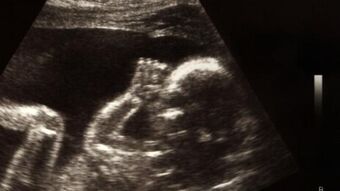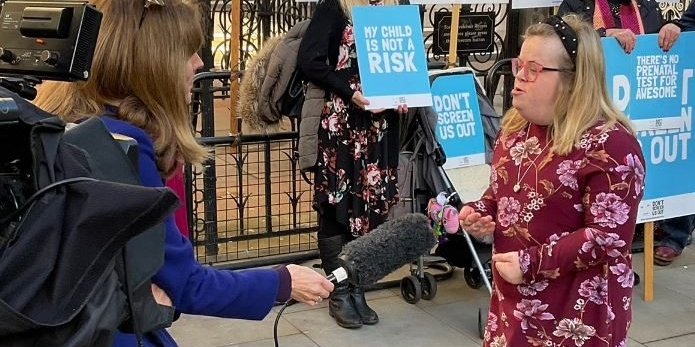Majority of women oppose radical abortion law change
Abortion
Less than a quarter of women in England and Wales are in favour of a more radical abortion regime, new polling figures suggest.
A ComRes poll of 1,863 people in England and Wales for the social policy charity CARE (Christian Action Research and Education), reveals that when offered the choice of either the status quo, tighter restrictions on abortion, or making abortion available on demand or for any reason up to 24 weeks, just 21 per cent of women and only 26 per cent of men would support the latter option.
Meanwhile, 23 per cent of women think abortion is already too easily available and would support a more selective approach to when abortions are permitted.
Significantly, a total of 67 per cent of women favour either the status quo or a more restrictive abortion regime.
The results also show that the majority of men and women are opposed to sex-selective abortion with only two per cent of women and six per cent of men in favour of allowing abortion if the parents want a child with a different sex.
CARE said the polling exposed the lack of support for the radical abortion regime envisioned by ‘decriminalisation’ proponents.
The polling comes ahead of today’s (Tuesday, October 23) debate in the House of Commons on abortion law provision in England, Wales and Northern Ireland.
Diana Johnson, Labour MP for Kinston upon Hull North, will introduce a Ten Minute Rule Bill which is likely to amend Section 58 and repeal Section 59 of the Offences Against the Persons Act (1861) (OAPA) which would leave Northern Ireland, England and Wales with one of the most extreme abortion regimes anywhere in the world.
It would also render the 1967 Act (which sets out exceptions to the OAPA) completely null and void, removing the efficacy of existing safeguards and opening the door to sex-selective abortions, more downs syndrome babies being aborted and abortion anytime, anywhere for no reason up to 24 weeks.
CARE’s chief executive Nola Leach said:
“This polling helps to counter the impression that there is a groundswell of momentum behind this push for a more extreme abortion law.
“Actually, what our poll shows is that the approach to abortion being advocated by a small, but vocal group of MPs and by abortion providers is completely out of step with what most women want.
“Amending section 58 and repealing sections 59 and 60 would leave England, Wales and Northern Ireland with one of the most extreme abortion regimes anywhere in the world.
“It would render some of the safeguards in the 1967 Abortion Act completely null and void.
“This could open the door to sex-selective abortions becoming more common and more babies with Down’s syndrome being aborted. It would mean abortion being available anywhere, at any time up to 24 weeks, for no reason.
“This is not what the public wants. Our polling is consistent with other recent polls that show what women really want is more, not less safeguards.
“The push for removing abortion from the criminal law is being driven by abortion providers and a small minority of MPs who are determined to impose change on the people of NI and in England and Wales too.
“If MPs want to demonstrate that they are in step with public opinion, they will vote against this Ten Minute Rule Bill today.”
ENDS
Notes to editors:
For more information please contact James Mildred: james.mildred@care.org.uk // 07717516814
CARE is a well-established mainstream charity bringing Christian insight to matters of public policy.
ComRes surveyed 1,863 adults in England and Wales online between 12 and 14 October 2018.
In a further blow for proponents of decriminalisation, the polling also found that when the 21 per cent of women in England and Wales who say that they want abortion on demand up to 24 weeks are presented with specific possible contexts in which this could take place under the proposed new regime, none of those contexts gets universal approval – suggesting that support for a more extreme abortion law is weaker still.
Scenarios where fewer than 50 per cent of those who say they support the proposals in Diana Johnson MP’s Ten Minute Rule Bill include:
-
just 46 per cent support ending a pregnancy because the mother is not in a stable relationship,
-
while only 35 per cent of the Bill’s supporters would back abortion if the reason for ending the pregnancy was that the mother says having a child would get in the way of career or educational opportunity.
-
Finally, a mere nine per cent of the Bill’s supporters would back support abortion if the parents want a child of a different sex.
Diana Johnson MP will introduce her Ten Minute Rule Motion in the House of Commons on October 23. She has indicated she will push for a vote.
This latest poll backs up previous findings. In 2017, ComRes polling showed that a majority of British women want more, not fewer safeguards across a number of key areas. For example:
91% of women agree that gender-selective abortion should explicitly banned in law.
70% of women believe the current 24 gestational limit for abortion should be reduced.
There is some evidence from Canada to suggest ‘decriminalisation’ leads to more sex-selective abortions. Canada has not had an abortion law since 1988 (unique in the Western world). While there is no data collection to speak of, the Canadian Medical Association Journal has said this: “Easy access to abortion and advances in prenatal sex determination have combined to make Canada a haven for parents who would terminate female foetuses in favour of having sons.”




Share story
Majority of women oppose radical abortion law change